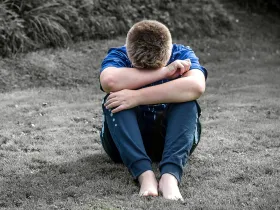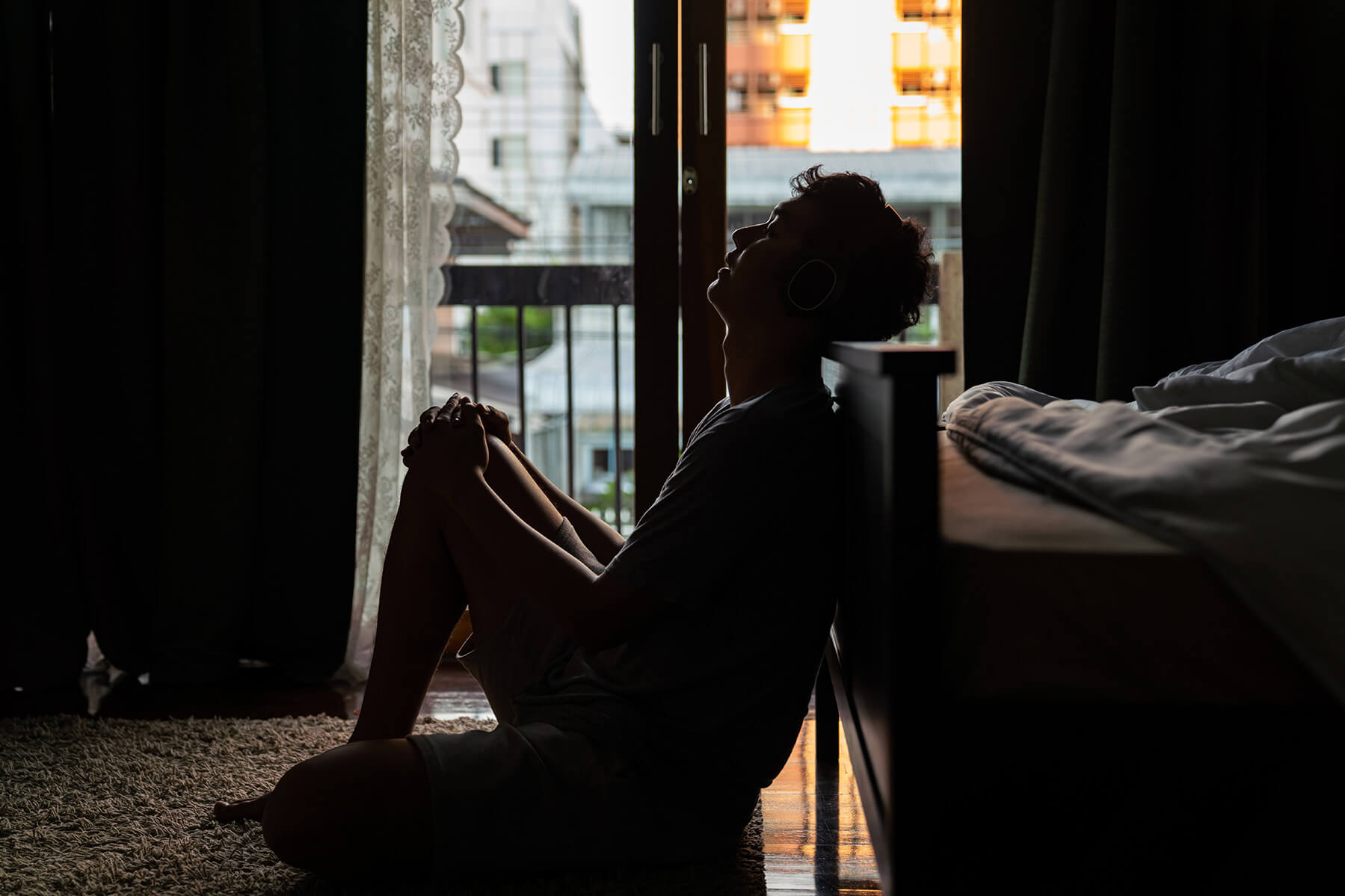
With all of the awfulness, we forget straightforward ways to feel better.
Things seem kind of awful lately.
I can’t help but to conclude that this is really bad for our national and personal psyches. Feeling worried and angry all of the time increases stress and all of the hormones that go with it. We go about our days in the highest state of alert, our fight or flight impulses always ready and eager to take in and appraise the next bit of badness that pops up on our screens.
This is an especially bad way for us to paint the world that our kids will inherit.
I know the counterargument. What if the world really is that bad? What if the bad news is both accurate and justified? Would we be doing our kids any favors if we shielded them from the reported lousiness that gets reiterated throughout the daily grind of our worried lives? Isn’t it good that they see that we’re concerned?
Well, yes and no. Sort of.
The answer, in other words, is nuanced.
This is, in fact, the core of our troubles. We don’t, as a rule, enjoy nuance when we’ve been primed for near constant outrage. Nevertheless, it is nuance that we need and it is nuance that we lack. Nuance, however, requires careful guidelines, and I’d like to remind myself and anyone else who will listen about some of these guidelines. We can use these guidelines to at least partially turn this whole negative aura around.
Guideline #1 – Utilize the Community
Talking about the importance of community might strike readers as a corny kum-ba-ya response in the face of legitimate crises, but community involvement and cooperation has been shown all the way down to the level of our molecules to decrease our stress and improve our resiliency. For example:
1. Communities that pay attention to being outside and among nature do measurably better than communities that don’t take time or have access to natural resources. Town-led hikes and picnics make our brains calmer.(link is external)
2. Teens who are involved in a mixture of organized as well as unstructured activities fare much better (link is external)than teens who are either entirely unstructured or massively over-structured.
3. Helping kids to take pride in community identities and at the same time to celebrate their unique ethnic identities has lasting positive effects on the Hypothalamic-Pituitary Axis production of stress-released molecules.(link is external) In other words, appreciation of the ways that individual diversity can enhance community connectedness primes teen brains to experience substantially less negative stress well into adulthood.
4. Community gatherings as uncomplicated as amateur musical gatherings actually measurably enhance the well-being of the community. Community choirs(link is external), for example, have been shown to help adolescents to feel more positively connected to their surroundings. Researchers have also measured improved protection against disease (link is external)among communities that foster community concerts.
You get the point. The best protection for our communities in the wake of all this negativity is some good old-fashioned getting together. The irony, of course, rests in the fact that the more negatively we feel towards one another, the less likely we are to get together. That sounds a little too much like a middle school cafeteria for my taste. Let’s get our communities further along the trajectory towards adulthood.
Guideline #2 – Take Care of the Individual
There is a tendency for our digestion of daily events to leave us feeling that there is nothing we can do to improve our moods. This learned helplessness(link is external) can lead to feelings of persistent grumpiness and even to significant psychiatric distress from which we imagine there is no escape.
It turns out, however, that the opposite is true. Our treatments for feeling constantly stressed are easily accessed and immensely successful. Our treatments for psychiatric illnesses are effective and satisfying. I would never claim that we can (or would want) to rid ourselves entirely of our stress, but we can do a lot more to mitigate it.
1. We need to moderate our consumption of the news. Turn off the push notifications. Look somewhere besides Facebook or Twitter for the world’s opinions. This all sounds so easy, and yet our brains are wired to stay alert for bad news. News outlets, non-profit or otherwise, crave viewers and listeners and readers. They’re going to give us what our brains “want” constantly, even if our calmer selves know that this isn’t the best practice for our well-being. We need to actively turn off the news and limit it to certain times of the day. Otherwise, our bodies persist in a heightened state of fight or flight.
2. Yoga isn’t just about the pants. Study after study has demonstrated that a number of activities that currently fall under the category of “mindfulness” improve health and psychological well-being(link is external). These activities don’t require a formal class or even a great amount of time, but they do require effort and designated periods throughout the day. The CDC has reported that workers improve productivity and job satisfaction when they engage in mindfulness practices.
3. We may be able to help protect kids from the impact of stress by encouraging mindfulness practices(link is external). There is even evidence that these kinds of activities improve brain plasticity; that is, the capacity for the brain to adapt as it ages to potentially stressful experiences.
4. For those of us who suffer from actual psychiatric disorders, remember that our treatments do in fact work. They don’t entirely eliminate all of the symptoms, but they ameliorate a great deal of suffering. It is possible that the current national mood is contributing to a sense that our interventions are not useful. What we need to do is make our interventions more accessible, and this is doable with better cooperation and communication among individuals, families, clinicians and social agencies.
These feel like dire times, and certainly, there are some very scary happenings that are quite appropriately reported in the daily news broadcasts. We cannot, however, allow ourselves to become mindless and angry crocodiles. Our brains are too big for that, and our goodwill is too powerful. We have to actively reach for our better selves.
By Steven Schlozman M.D.




